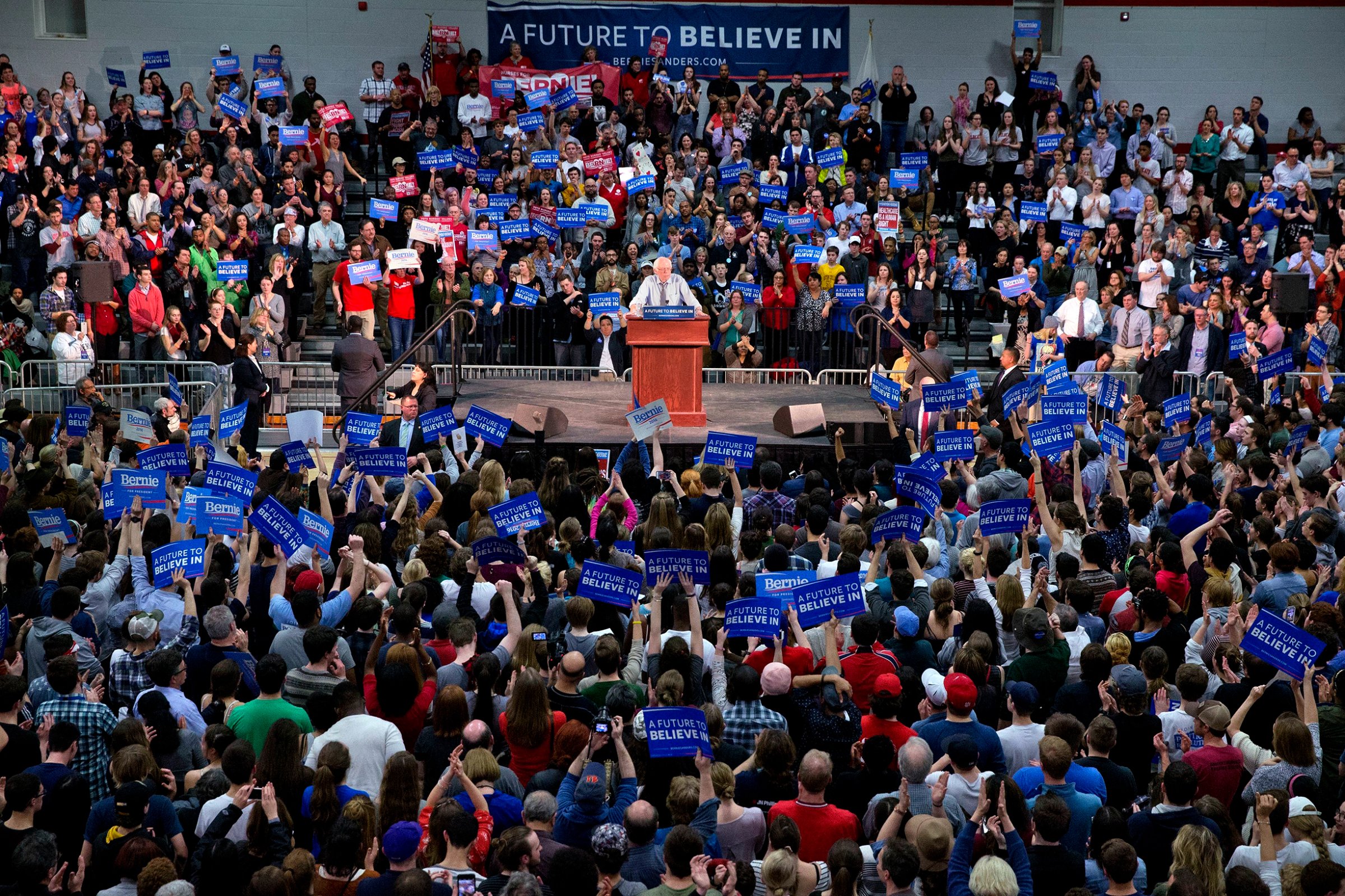
Bernie Sanders greeted his Super Tuesday defeat with trademark defiance. Though he had been clobbered by Hillary Clinton, losing seven of 11 states, the prize had not dimmed. “This campaign is not just about electing a President,” he told a crowd in Essex Junction, Vt. “It is about making a political revolution!” Then he left for his home in Burlington, where he stoked the fire in the wood-burning stove and watched his grandkids play on the couch.
Sanders’ bid for the White House will almost certainly end at the Democratic Convention in July. But it is increasingly apparent that he has, in fact, sparked a populist revolt that will endure well beyond the primaries. There is real anger on the left about income inequality and Wall Street’s influence, and it may cause Democrats the same kind of headaches that the Tea Party gave Republicans. “Party leadership, rather than wringing their hands, needs to start thinking strategically about this,” says Representative Raúl Grijalva of Arizona. “If you eliminate the messenger, it doesn’t eliminate the message.”
Sanders’ allies have closely studied the Tea Party’s rise in 2009 and 2010, when the far right challenged the GOP leadership, put up opponents in primaries and hijacked the party’s agenda. Now progressives say they are planning a similar upset. “One can disdain everything the Tea Party stands for, but you cannot be anything but admiring about what they have accomplished,” says Dan Cantor, national director of the Working Families Party, an activist progressive group that has endorsed Sanders. “They’re incredibly powerful as an organization.”
In some ways, Sanders voters are like a fun-house mirror image of the Tea Party. At rally after rally, in Iowa, New Hampshire, Maine and Nevada, Sanders backers were blue collar and struggling, truckers, exterminators, furniture sellers and community-college students. They often said they were angry about Wall Street bailouts, disappointed in President Obama and wary of trusting Clinton. “I don’t believe a word that comes out of her mouth,” says Kimberly Vazquez, an Arizona resident and daughter of Mexican parents who canvassed for Sanders in Nevada last month.
Sanders’ legatees are growing in number. Representative Alan Grayson, a left-wing firebrand running for the U.S. Senate in Florida, recently called his Establishment-backed opponent a “lickspittle pillock.” Chris Larson, a Wisconsin state senator, has launched a progressive primary fight against incumbent Democrat Chris Abele for Milwaukee County executive, Governor Scott Walker’s former post. “This is a rejection of the corporatist Democrat, Robert Rubin party that idolized Wall Street,” says John Fetterman, the mayor of Braddock, Pa., who is running for the Senate against a D.C.-backed opponent. “Bernie has shifted the goalposts.”
In the short term, whether Sanders voters transfer their loyalty to Clinton will depend on both Bernie and Hillary. After raising $43 million in February, Sanders will campaign on to the convention, amassing delegates in states like Wisconsin, Maine and Michigan, but is set to fall short of the tally needed to win the nomination. Nonetheless, he will want a say in the party’s platform and a prime-time speaking slot in Philadelphia, and he may press the convention to adopt rules that bar Democrats from accepting super-PAC money in primary races. How gently Sanders is treated by the Clinton folks between now and then may determine what portion of his primary voters stick with the party nominee in November.
And if the GOP wins the general election with Donald Trump, the Sanders revolt seems certain to grow. Any Republican in the White House would embolden the Sanders left; a Trump presidency might inflame it. In the meantime, the Sanders vote is mulling its options. “I’m not a fair-weather friend of Bernie’s,” says Rick Duncan, a semiretired telecom line worker from Urbandale, Iowa. “I’m there till he’s done one way or another. When we talk about a revolution, we’re serious.”
–With reporting by JAY NEWTON-SMALL/WASHINGTON
More Must-Reads from TIME
- Donald Trump Is TIME's 2024 Person of the Year
- Why We Chose Trump as Person of the Year
- Is Intermittent Fasting Good or Bad for You?
- The 100 Must-Read Books of 2024
- The 20 Best Christmas TV Episodes
- Column: If Optimism Feels Ridiculous Now, Try Hope
- The Future of Climate Action Is Trade Policy
- Merle Bombardieri Is Helping People Make the Baby Decision
Contact us at letters@time.com